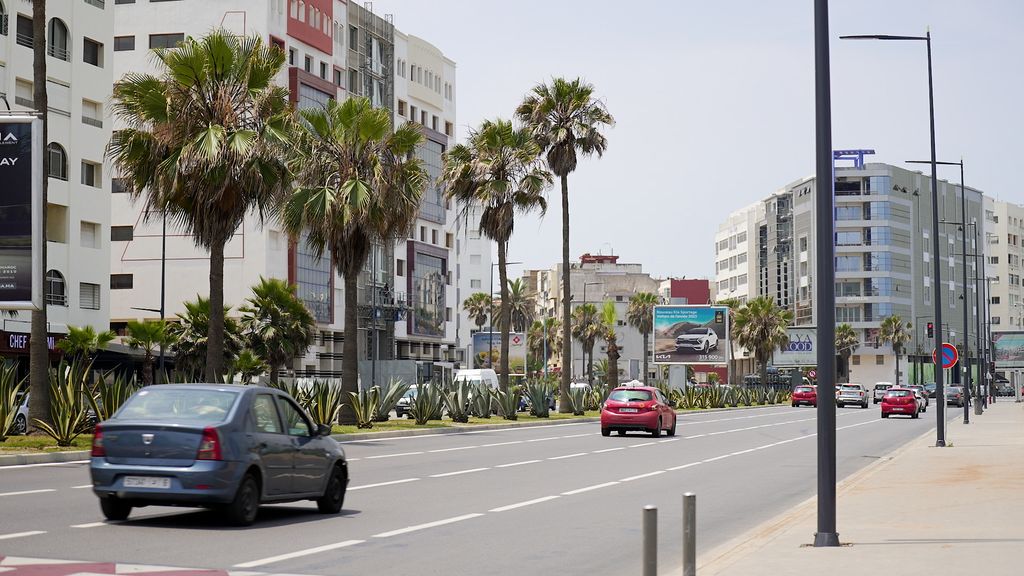NOS News•
-
Samira Jadir
Morocco Correspondent
-
Samira Jadir
Morocco Correspondent
From Fez to Casablanca, Moroccan cities abound with palm trees. An unsuspecting tourist might think that this is the most natural thing in the world. But these exotic species do not belong here at all. In fact, it causes problems. They provide little shade and absorb much less carbon dioxide than deciduous trees. Landscape architect Salima Belmoghaddam of the Maroc Environment 2050 working group in Casablanca is trying to turn the tide.
Belmokadem is sounding the alarm now that Moroccan cities are getting warmer due to climate change and water is becoming increasingly scarce in Morocco. She is very concerned about her hometown of Casablanca. This is why she wants the local government to plant more deciduous trees in the city.
“Deciduous trees provide shade, convert more carbon dioxide into oxygen and hold more rainwater,” she explains. All that the palm tree does is less well. The fact that Moroccan city councils still favor palm trees has practical reasons. After palm trees’ first years of life, they need less water than deciduous trees, and they are much easier and less expensive to maintain.
Palm trees grow naturally only in southern Morocco. In the big cities on the West Coast in the North and North, it didn’t happen; were imported there. Washingtonia palm trees, which are imported from the United States, are particularly popular.
“Planting palm trees was introduced by the French colonialists. They wanted to make the cities look like famous cities, like California in the United States,” says Belém Kadim.
But according to Belém Kadim, the imported trees are not at all resistant to the salty sea waters of the Atlantic Ocean. “Washington palms were chosen at random and don’t belong here at all.”
The continued demand for American trees has created a thriving market in Morocco. As the arborist, Youssef Washwash, believes that these palm trees are still popular. According to him, these trees are not only bought by the government but they are also popular among individuals.
He advises the government to bring more biodiversity to the city. “We must try to preserve the uniqueness of our cities by using our rich heritage of indigenous trees and plants. I hope we work more with these species in Morocco and import fewer trees from abroad.”
The deputy mayor of Casablanca, Ahmed Afil Elalamy El Idrissi, acknowledges the problem. According to him, the lack of water that the city is facing is one of the obstacles to the large-scale cultivation of deciduous trees, which consume more water than palm trees. “We’ve reached the point where we need to make an informed decision between watering city dwellers or spraying plants.”
Al-Idrisi confirms that the city council has already initiated several projects to plant more deciduous trees. For example, there is the “Tree for Every Family” project, with which Casablanca is supposed to become a million deciduous trees richer by 2027. According to Driver, it is unreasonable for the city to ban palm trees altogether. “The palm tree is part of the city’s colonial history. It has become a cultural heritage.”

“Infuriatingly humble social media buff. Twitter advocate. Writer. Internet nerd.”








